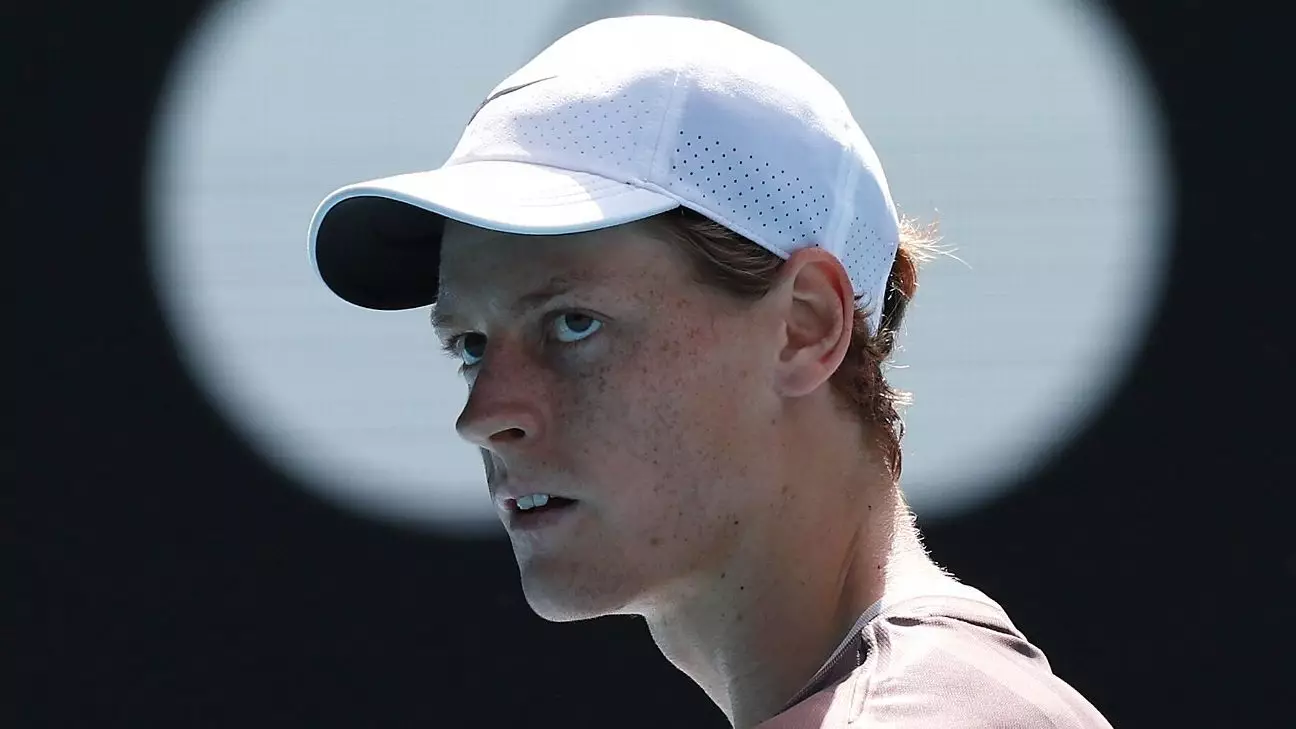The landscape of professional sports, particularly tennis, has faced increasing scrutiny regarding doping violations and the strict regulations imposed by governing bodies. Recently, the spotlight has shifted toward rising star Jannik Sinner, who has accepted a three-month ban following a settlement with the World Anti-Doping Agency (WADA). This decision came in the wake of two positive tests for the anabolic steroid Clostebol, reported almost a year ago. Although the incident has led to considerable debate about the fairness and transparency of doping rules, Sinner’s case highlights the complexities surrounding unintended rule violations in competitive sports.
Initially, WADA sought a much harsher punishment for Sinner, proposing a suspension of at least one year. However, after extensive deliberations, the Italian player accepted a three-month sanction agreed upon in the settlement that allows him to continue competing without missing significant tournaments, including the French Open in May. This resolution indicates a unique situation, wherein WADA acknowledged that Sinner’s exposure to Clostebol was unintentional — the result of contamination during a massage by a trainer who had recently used the substance. As a result, the governing body accepted that Sinner had no intention to cheat and could not have anticipated the breach.
The settlement has allowed Sinner to return to training and pursue competition with a refreshed mindset. This is crucial for a player of his caliber, especially after recently capturing his first Grand Slam title at the Australian Open in January. The timeline of his suspension extends from February 9 to May 4, which provides him an opportunity to come back strong for the Italian Open, solidifying the importance of this case in his overall career trajectory.
While Sinner’s explanation of the doping incident has been largely accepted, the principle of accountability still looms large over athletes. As per WADA’s statement, athletes carry the responsibility for any discrepancies related to their entourage, even in cases of unintentional contamination. This aspect introduces a layer of complexity as it raises questions about how players manage their teams and the protocols they establish to ensure compliance with anti-doping rules.
Legal implications were outlined by Jamie Singer, Sinner’s attorney, who emphasized that despite the unfortunate situation, the player had no intent, knowledge, and gained no competitive advantage from the substance. This situation serves as a cautionary tale for athletes and their support teams alike; negligence on the part of team members can lead to potential career-altering consequences for the athletes themselves.
The response to the settlement from various tennis stakeholders has been largely supportive of Sinner. Italian Tennis and Padel Federation president Angelo Binaghi labeled the ban an “injustice” while simultaneously expressing optimism that this resolution marks the end of a “nightmare” for Sinner. The broader tennis community, including notable peers like Novak Djokovic, has pointed out the inconsistency in how doping cases are handled, suggesting a need for a reevaluation of existing policies to ensure fairness across the board.
This situation not only affects Sinner’s standing as the current top-ranked player but casts a shadow on the regulatory environment within professional sports. Questions about transparency, public disclosure of doping violations, and the timelines involved in legal proceedings are now at the forefront of discussions. As Sinner’s case was allegedly kept under wraps until August, skepticism among fans and players regarding the consistency of the processes may encourage calls for reform in how cases are reported and handled.
Looking ahead, Sinner stands to lose a significant amount of ranking points due to this ban, which could potentially shift the dynamics of men’s tennis. Currently ahead of his nearest rival, Alexander Zverev, Sinner’s suspension raises the possibility of a dramatic change in the rankings. Zverev, who is known for his competitive nature, could take ownership of the top position if he performs optimally during Sinner’s absence.
Despite the challenges posed by this setback, the future still looks bright for Sinner. With a strong support system and a clear resolve to move past this tribulation, he should be able to regain momentum quickly upon his return. His talent, coupled with the lesson learned from this experience, could ultimately contribute positively to not only his career but also the broader discourse around doping in sports. Ultimately, the resolution of this case can serve as a pivotal learning moment for the tennis community as it strives for integrity while navigating the often murky waters of competitive ethics.

